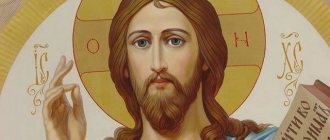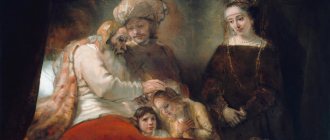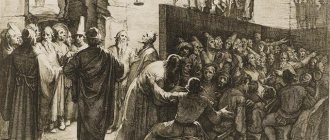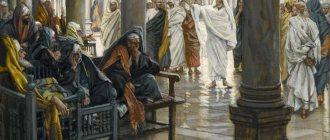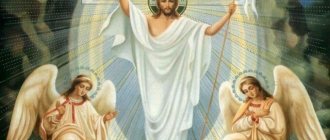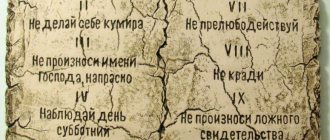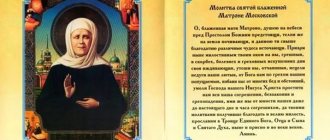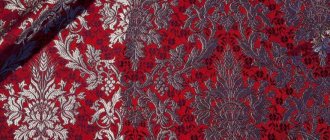At the liturgy on Monday of the 11th week after Pentecost, a passage from the Gospel is read in which Jesus Christ utters the words: “Woe to you, scribes and Pharisees, hypocrites.” He addresses these words to those who are known among the people as very righteous and observant of the Law of God. But these people are only outwardly like this, but in essence, on the contrary, they are so depraved and corrupt that the Lord predicts grief for them. He does not curse them, but prophesies that if they do not change, a terrible fate awaits them ahead.
And those who knew that Jesus Christ, usually meek and humble, fell into anger and were horrified by these prophecies. This means that there were special reasons for the wrath of the Lord.
Pharisees
The word “Pharisees” is used so often in the Gospel that you inevitably begin to perceive it as something important that you definitely need to know about. It is the Pharisees who constantly argue with Jesus, ask him tricky questions, and try to catch Him in contradictions. In turn, Jesus denounces them in every possible way for hypocrisy, distortion of the Law of God, and excessive enthusiasm for external piety. Why did Jesus have such a strong confrontation with the Pharisees?
The answer here is simple: those who are most firmly committed to the old teaching challenge the new teaching more than others. The Pharisees considered themselves the most zealous fulfillers of God's commandments. The very word “Pharisee” means “isolated”, “separated” from all other Jews who do not live according to such strict rules. And indeed, the Pharisees tried very hard to live righteously. But at the same time they treated other people with disdain, considering them lower than themselves before God.
Ordinary people took them into account, revered them as teachers of the Law, feared their anger and never dared to argue with them about objects of faith. Therefore, the preaching of the unknown son of a carpenter was perceived by the Pharisees as unheard of insolence. If she had been less successful, she simply would not have been noticed. But the words of Jesus sounded with power, they changed the souls of people, calling them to a new life. Hundreds of followers followed the new Teacher, His speech attracted crowds of thousands of listeners who came from various cities and villages.
Of course, the Pharisees saw Him as a threat to their spiritual authority. Moreover, in reality this authority turned out to be largely dubious and unfounded. Thus, when distributing alms to the poor, the Pharisees used to gather a crowd of spectators around them so that they could observe their generosity. While observing fasting, they deliberately dressed in shabby clothes and painted their faces with white paint, so that those around them could see that they were exhausted from their Lenten exploits. During temple services, the Pharisees stood in the very first row of worshipers to emphasize their superiority.
Outwardly, they stood out from the crowd of ordinary residents of Israel with their clothes, which deserve special mention here. During the next rebuke of the Pharisees for their ostentatious piety, Jesus spoke about them to the people: ... yet they do all their works so that people can see them: they enlarge their storehouses and enlarge the waists of their garments... (Matthew 23:5). It is not at all clear from the text of the Gospel what kind of storage and storage of clothing we are talking about here. And these were precisely those very Pharisee insignia.
A Greek word is translated as “repository” in the Russian text of the Gospel, which has several meanings: protection, fortification, fortress, watchtower, as well as something that protects: an amulet, a talisman. In this case, the storage is what protects its owner. This was the name of the square leather boxes on which were written the words of the prophets who proclaimed the will of God to the people of Israel. The Pharisees tied them to their foreheads and to their left hands as a literal fulfillment of God's commandment: ...Therefore put these words of Mine in your heart and in your soul, and bind them as a sign on your hand, and let them be a blindfold over your eyes (Deut. 11 :18). These boxes were called tefillin. The Pharisees attached them to leather bands and wore them on their hands and foreheads. Apparently, in order to put more sacred texts on the tefillin, some of the Pharisees made these talisman boxes of absurdly large sizes, which is what Christ mentioned.
The Russian expression “voskriya odezh” can also mislead the inexperienced reader. The Greek word used by the evangelist in this case does not mean the tails of the cloak at all. Here we are talking about tzitzit - tassels that had to be sewn on the edges of clothes so that they would constantly remind them of the commandments of God and the need to lead a righteous life: ...And the Lord spoke to Moses, saying: Speak to the children of Israel and tell them to make tassels for themselves on the edges their garments throughout their generations, and in the tassels that were at the edges they inserted threads of blue wool; and they will be in your hands so that, looking at them, you will remember all the commandments of the Lord and fulfill them, and not follow your heart and your eyes, which lead you to fornication, so that you will remember and fulfill all My commandments and were holy to your God (Numbers 15:37–40).
Being carried away by such details, the Pharisees almost lost the main meaning of the Scripture, which they undertook to interpret before ordinary people. Instead of love and mercy for their neighbors, they made the main goal of their piety the meticulous adherence to various ritual details. And they were very proud to observe these rituals. It was for this misunderstanding of the essence of God's Law that Jesus scolded them, trying to reach their hearts. The Pharisees tried to kill Him with stones in the temple courtyard. But nevertheless, it was from among them that Nicodemus , who was not afraid to stand up for Christ when the high priests sent their servants to arrest Him. Joseph was a Pharisee, who risked directly turning to the Roman governor of Judea, Pontius Pilate, with a request to give him the body of Jesus for burial. Gamaliel was a Pharisee - the most authoritative teacher of the Law, who defended the apostles John and Peter arrested by the Jews at the trial. Finally, the Pharisee was the one whom Jesus Himself would later call His chosen vessel - the Apostle Paul , the enlightener of the pagans, who founded many Christian churches outside of Israel among other nations.
Despite their errors, many Pharisees sincerely sought to please God; their souls were not dead to accept the Good News about God, who had come to atone for the sins of people with His death. For this reason, the Lord denounced them so persistently, trying to save at least some.
Sadducees
Unlike the Pharisees, little is said in the Gospel about the Sadducees. Only once did they try to tempt Christ with an insidious question about a wife whose seven husbands had died. This attempt was as unsuccessful as numerous similar provocations on the part of the Pharisees. But unlike them, the Sadducees simply walked away from Jesus and no longer tried to test His knowledge of the scriptures. However, in his sermons, He warns people to beware of the teachings of the Sadducees in the same way as the Pharisees’ ostentatious “piety”: ...Jesus said to them: Take heed, beware of the leaven of the Pharisees and the Sadducees (Matthew 16:6). Who were the Sadducees and what was their teaching?
Their name comes from the name Zadok (or Zadok). This was the name of the priest who led the service in the Jerusalem Temple during the time of Solomon, the great king who ruled Israel a thousand years before the coming of Jesus Christ to earth. According to one version, the Sadducees called themselves that because they believed that their tradition came from this high priest. Indeed, for many centuries it was the Sadducees who occupied all the main positions in the spiritual, administrative and military hierarchy of the Jews. Even during the period of the occupation of Judea by Roman troops, the Sadducees, being high priests, could still manage all the treasures of the main shrine of the people of Israel - the Jerusalem Temple, and this was a lot of money.
The Sadducees, who had power, were subject to the usual temptations of people in power. Uncontrollably managing donations to the temple, they sometimes stooped to outright fraud and deception. Thus, the famous Gospel episode with the expulsion of traders and money changers from the temple was, in fact, a direct denunciation of the Sadducees of the lawlessness they were committing.
The fact is that the annual tax on the Jerusalem Temple and, in general, any monetary donation for the needs of the temple could only be brought in special coins - temple silver coins, which did not have the image of the Roman emperor. It was believed that such an image would desecrate the treasury. Therefore, pilgrims first had to exchange their money for pieces of silver and only then make a donation. This operation was performed by money changers who placed their tables right at the entrance to the Jerusalem Temple. For their services they charged an extortionate commission, which amounted to almost two-thirds of the amount exchanged.
But the seizure of money from pilgrims did not end there. Further, with the pieces of silver they received, they had to immediately, in the courtyard of the temple, purchase animals for sacrifice, as required by Jewish law. They cost several times more here than in the city, but pilgrims were willing to pay this inflated price. The fact is that temple servants checked all the sacrifices made for the absence of defects (and they also had to pay for the check). It is extremely rare for someone else’s product to receive a positive conclusion after such an examination. To get rid of this procedure, people were forced to buy animals for victims here, paying exorbitant prices. That is why Jesus called money changers and cattle sellers robbers who rob pilgrims. But would the money changers and merchants have been able to organize such a predatory business without the permission of the Sadducee high priests?
The lion's share of the profits from all these frauds went into their hands. Meanwhile, such Sadducean greed for money and power had its own “theological” justification. Unlike the Pharisees, the Sadducees did not believe in the afterlife of the soul and the future resurrection of the dead. Therefore, they sought to fill their earthly life with all kinds of benefits, without hoping for posthumous reward. This was also facilitated by the common teaching with the Pharisees that God sends earthly wealth only to the righteous as a reward for their pious life. Having learned that Jesus raised the dead Lazarus, who had lain in the grave for four days, and that all the people then followed Him as the promised Messiah, the Sadducee high priests were afraid that the new King would deprive them of the usual “feeding trough” into which they had turned their ministry . And, conspiring with the leaders of the Pharisees, they decided to kill Jesus.
The Gospel does not mention a single Sadducee who believed and repented.
Opinion of Josephus and the Apostle Paul
Josephus wrote in “Jewish Antiquities” that the distinctive feature of the Sadducee sect and their teaching from the teaching of the Pharisees is that the Pharisees transmitted to the people many laws based on ancient traditions that were not part of the legislation of Moses. The Sadducees completely reject these layers and demand compliance only with written laws, depriving oral tradition of any meaning. In this regard, many disagreements and disputes arose between the Pharisees and Sadducees.
In the “Acts” of the Apostle Paul, the teaching of the Pharisees is characterized as “the strictest in our religion.” Being adherents of ritual purity, they did not want to sit at the table not only with foreigners and people of other faiths, but also with other Jews if they believed that the latter were defiled by sin or did not carefully fulfill everyday religious instructions. The Pharisees carefully observed fasting, prayed for a long time, observed the Sabbath day, and strictly followed the regulations regarding the tithe due to the Temple.
Publicans
Publicans are mercenaries of the Romans who came to the land of Israel and captured it. The Romans recruited publicans from local residents to collect taxes for the imperial treasury. There was a reason for this policy of the Roman authorities: Jewish society was closed to outsiders, so it was more convenient for those who knew all their tricks and secrets to extract all taxes from the rebellious Jews to the last coin. Simply put, publicans were traitors to their people.
The elder publicans were wealthy Jews who had enough money to buy the right to collect taxes from the Romans. Next, they hired subordinates, who were assigned an amount that they had to collect from the people in the area entrusted to them.
In addition to Roman taxes, tax collectors also had to extort money from people for their own profit. And for this they did not skimp on funds. Taking the last pennies from an unfortunate poor man and leaving a widow and children without a livelihood was a common daily practice for them.
The Jews were afraid to resist the publicans, because they were in the service of the Romans. They were simply hated and considered the worst enemies of God's people. Among the Jews they were outcasts despised by all. People were disdainful of sitting at table with them, avoided entering their houses and generally maintaining any communication. Therefore, for many it was a real shock to see the Teacher, respected by the people, visiting the elder tax collectors or at the same table with ordinary tax collectors. And for the tax collectors themselves, communication with Him was the only opportunity to talk with a respectable person about faith and salvation.
None of the rabbis - the Jewish teachers of piety - would ever agree to even approach these people, who made themselves outcasts among their own people. But for Jesus there were no outcasts. If the publicans wanted to repent of their atrocities before God and people, He always gave them such an opportunity, without any fear of ruining His reputation. Even among such hard-hearted people, He gathered His harvest for the Kingdom of Heaven. The Gospel tells about the chief of publicans, the rich man Zacchaeus , who, after communicating with Jesus, repented and decided to return with an increase everything that he had ever taken from people. According to legend, Zacchaeus subsequently became the first bishop of the Christian Church in Caesarea Palestine, a large city on the shores of the Mediterranean Sea. We know another repentant publican today as the apostle and evangelist Matthew.
What kind of “leaven” was Christ talking about?
“Beware of the leaven of the Pharisees and Sadducees,” Jesus warned the disciples. By leaven here we mean sinful wormholes that corroded people who sincerely considered themselves believers.
The Pharisees tried to fulfill God's commandments, but they did everything for show, humiliated the less pious, and strived for primacy among the people. The Sadducees did not believe in the afterlife of the soul and in the resurrection of the dead, so they longed to gain power and wealth in this life. As a result, both of them, being irreconcilable opponents, came together to kill the sinless Savior.
These same dangers await believers at all times. Arrogance, ostentatious piety, thirst for money, fame and power - all this today can destroy even the most sincere faith in Christ from within. Sourdough is ordinary yeast that is added to the dough to make it ferment and become fluffy. Likewise, seemingly harmless desires can gradually “ferment” a Christian, turning him into a modern Pharisee or Sadducee. But even in this case, a person still has the opportunity, like a repentant publican, to turn to Christ with the words ... God, be merciful to me, a sinner, and hope for justification. Because, as has already been said, for Jesus Christ there are no outcasts among people.
Drawings by Ekaterina Gavrilova
Now you know who the publicans, Sadducees and Pharisees are. Who do you think you would have been in Judea before the birth of Jesus Christ? Roman warrior, publican or Pharisee?.. Take our test and get the answer.
What are your political tastes?
How do you make money?
A passerby was rude to you. Your actions?
The most important problem in your life is:
What will make you most happy in the world?
You were invited to visit. There are many dishes on the table. Why won't you eat?
What excites you?
Who are scribes?
Along with the Pharisees and Sadducees in the New Testament, Jesus Christ often criticizes the scribes. As a rule, he begins his denunciations with the phrase: “Woe to you, Pharisees and scribes, hypocrites.” Who are these scribes?
Scribes were a profession practiced among Jews that involved writing Torah scrolls and other religious sources. They were also called sofers, or soifers. In Russian, these are scribes.
They wrote manuscripts using a special square script - the Assyrian script in which the Tablets of the Testament were written. This specialty required the development of special techniques, knowledge of the laws of lettering, and extraordinary concentration.
In addition, the scribe must be a God-fearing person, honest and strictly follow the commandments of the Torah. They formed a learned corporation and became the first of the interpreters of the Holy Scriptures. The sofers lived in the city of Ibais and were mainly from the tribe of Levi.
Some authors, such as Epiphanius of Cyprus and John of Damascus, identified the scribes as a separate Jewish heretical sect. However, today such a distinction is considered incorrect, since the scribes could well have been both Pharisees and Sadducees. Therefore, the words of Jesus Christ regarding the scribes must be considered in a figurative sense - as people formally related to the faith.
